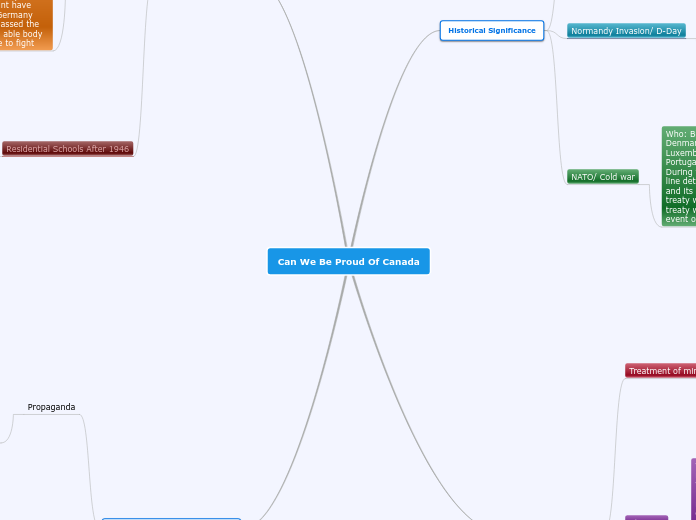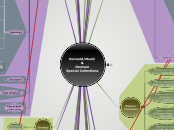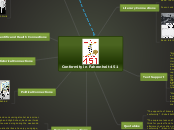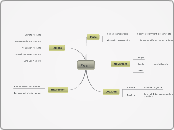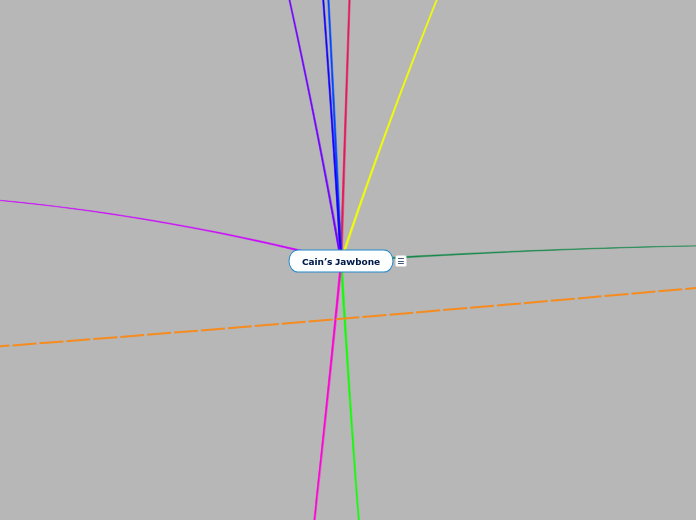Can We Be Proud Of Canada
Taking A Historical Perspective
Social Life In the 1950's
Who: The baby boomers What: Teen culture, family, school, housing and values of the baby boomers changed How: Teens were expected to help they got allowances in economy housing doubled people could afford luxury Why: The great depression was over people had jobs and could make money making buying life easier and giving them room to spend money on luxury items
We should be proud of Canada for boosting the economy and making peoples lives better. People were finally happy the war was over people are still happy today yes people could live more luxurious the economy was boosting. I believe its good the war ended and people can enjoy their lives and money I learned the world is deeply affected sometimes
The Holocaust
Who: Hitler, Nazi soilders and 6 million Jews What: Hitler came in power and wanted to exterminate all the Jews. He had a personal army and a 6 stage plan to get rid of all the Jews he concentrated them and abused them killed and took them away from their families and striped them of their rights there were even camps in Canada. Where: Nazi, Germany When: 1930 Why: Hitler was an antisemitic and wanted the Jews exterminated
We should not be proud of Canada for having a part in this terrible event. People in that time had mixed beliefs some agreed and had the same antisemitic beliefs and others tried helping the jews. Today no one would agree with the senselessness killing of 6 million people nowadays, yes people made reasonable decisions based on the information given no one could of saved all the Jews. I believe the whole situation is wrong and I can learn that society is easily manipulated and feared
Propaganda
Who: The government What Used propaganda to promote people to join the war effort Why: So countries had enough soilders Where All the countries at war When 1914-1929 How: Used newspaper, posters and films to promote the word to join the war effort
We should be proud Canada tried to promote the war effort people in that time believed they should help during the war no matter what it was , going to fight donating food , supplies or money. Today people believe it is not their issue or theirs enough help and one person wont make a difference. I believe the government sugar coated being part of the war effort they were only desperate and needed more men. I can learn that every thing is not what it seems and i have a choice
Continuity & Change
Residential Schools After 1946
Who: All aboriginal children What: Schools created by the government aboriginal children were forced to attend so they could " assimilate" Where: Across Canada When: 1946-1996 Why: To remove youth from the influence of their homes, to have them be "normal" How: Collected all aboriginal children and abused, assaulted and "assimilated" them into christian children
We should not be proud Canada tried to force aboriginal culture out of these children lives and Canada. Aboriginal children no longer are forced to go to residential schools. Aboriginal children that attended residential schools still have a piece of their culture missing, these changes have happened over years. These changes show positive progress for aboriginals because they no longer have to attended these schools. These changes probably upset the the Christians who supported "assimilation"
Conscription
Who: French and English Canadians What: French Canadians felt it was an English battle and not their war, so they disagreed with conscription were as English Canadians agreed and supported conscription. Where In Britain on the day they declared war on Germany at parliament When: Sep 3, 1939 Why: The government knew that they didnt have enough men to fight war with Germany How: Parliament immediately passed the national service act imposed all able body men aged 18-41 years old were to fight
We should be proud Canada put conscription to a vote allowing everyone to give their opinion Canada has gained independence so we no longer have conscription problems with the french and British Canadians, we are no longer at war making conscription unnecessary. French and English still hold grudges and these changes slowly progressed over the years of war, it positively effected the English because they wanted conscription and negatively effected the French who felt it wasn't their war
Women's Organisations WCTU, YWCA
Who: Organisations such as YWCA, WCTU etc What: These organisations fought for improvements in society such as prohibition, better community services and better health and educational facilities they also fought for equal pay and rights for women Where: Throughout the communities and outside of home When During the 1920's Why: Women wanted equal rights to men in politics, education and work they wanted to feel socially and economical equal
Subtopic
We should be proud of the women for fighting for equal rights but Canada's government could of had a bigger part in making them equal in the first place. Women and men have much more equal rights today but men are still more respected in some professions, these changes came over decades but show very positive outcomes for women.
Cause & Consequence
Internment of Japanese Canadians Apology
Who: Prime minister Brian Mulroney What: Brian apologized and the Canadian government announced a compensation pack. When:1988 Where: Canada Why: Canada needed to apologize for what happened and what the Japanese Canadians had been put trough How: Japanese Canadians had been given exemption from the zone and received care packages
We should be proud Canada apologized and realised the mistake but we should not be proud how long it took and that it happened at all. During WW2 people felt they were unsafe near the Japanese, so the government interned them. The government and other Canadians influenced this the ideas were, the Japanese were not welcome this resulted in Japanese wrongfully being interned. Many didnt make it out of internment which was unintended they were only meant to be away from the others
St. Louis
Who: A boat full of 900 plus Jewish refugees Where : In Cuba When: 1939 What: A German ocean liner infamously known for carrying more than 900 Jewish refugees from Nazi Germany intending to escape the holocaust but were denied entry Why: Canada was worried about national unity many Canadians were anti semitists prime minister Mackenzie King said it was ' not Canadas problem ' 'The line must be drawn somewhere' How: The prime minister Mackenzie King denied the St.louis entry
We should not be proud of Canada for letting innocent people die due to their anti semestic beliefs,900 plus Jewish refugees trying to escape the holocaust were denied entry everywhere due to the anti semestic propaganda and views of people. Everyone left them due to the belief Jews were greedy etc, the consequence of this was the death of all the refugees which was not what they had intended. The refugees had planned to escape
Treatment of minorities during WWI
Who: Minorities in Canada What: World war one broke out and Canadian men signed up for the war effort many minorities and enemy aliens were denied entry to the military Why: People felt uncomfortable with them fighting on their side they felt that the minorities were spies and not truly dedicated Where: Germany, France, Russia, Britain and Canada When: 1914
Minorities were known as enemy aliens so no one wanted them to fight. The government and few minorities who were spies made everyone sceptical. Socially they were unaccepted and had no economic boosts, they had to carry identification cards with them. The consequences were Canada having less men to fight the war. They intended for the enemy aliens to feel unwelcome and unwanted
Historical Significance
NATO/ Cold war
Who: Britain, Canada, America, Belgium, Denmark, France, Iceland, Italy, Luxembourg, Netherlands, Norway, Portugal and the United Kingdom What: During the cold war NATO provided a front line deterrence against the soviet union and its satellite units When: The NATO treaty was signed April 4, 1949 Why: The treaty was signed to help each other in the event of an attack Where: At sea
We should be proud of Canada for being apart of NATO they helped a lot of innocent people who were brought into the cold war. NATO changed the way the cold war would of turned out and created long lasting changes in the battle, everyone in the battle field and countries at risk were all affected soilders deeply.
Normandy Invasion/ D-Day
Who: Canadian, French, Britain and American troops When: June 6, 1944 What: The allied forces attacked German forces on the coast of Normandy. France with a huge force of over 150,000 soldiers the allied troops attacked and gained a victory Where: The beaches of Normandy Why: To fool Hitler and weaken German forces How: By using the element of surprise
We should be proud of Canada for being apart of this event, Canada was the first to complete their objective on the beach This event permanently effected history and the peoples lives involved. Many lives were lost on the battle field over 1.2 million joined in the battle this was a very important plan this was the first times all countries battled a common enemy using the element of surprise. It is part of the story of the day of deliverance this battle is still relevant today this was Canada's biggest military operation and we still mourn the lives lost for our freedom. Many soilders and civilians had different experiences some died fighting in the battle some survived some were permanently effected with injuries.
The Battle Of The Somme
Who: British Empire, including Canada, Newfoundland, France & the German Empire What: The bloodiest day in British history When: July 1-Nov 8 1916 Where:France,Somme on both sides of the river Why: the objective was to relive the french allies and push back Germans forces How: Canadians helped in the western front & dressed the wounded in a trench
We should be proud of Canada for the effort and lives lost in this battle. This battle created extreme change over 1 million lives were lost this was the first battle Britain was faced with untrained soldiers, this battle is part of the story of the bloodiest day in British history we value the lives lost in the battle. The soldiers who died and the soldiers who survived experienced different things.
